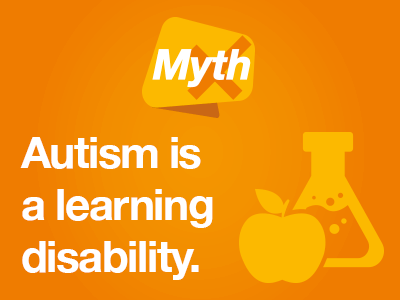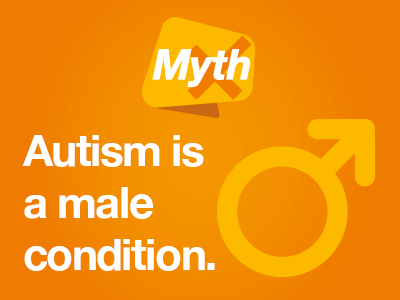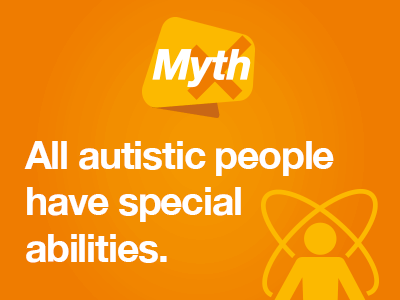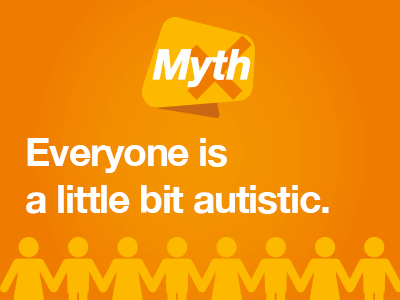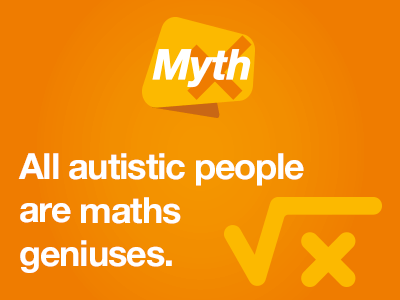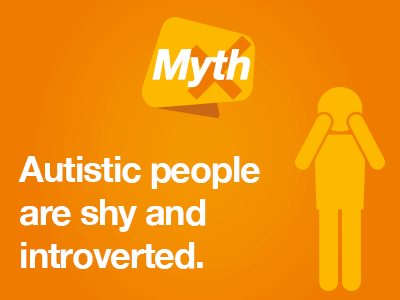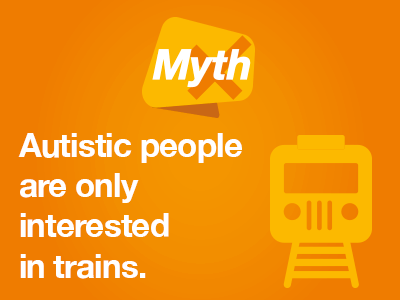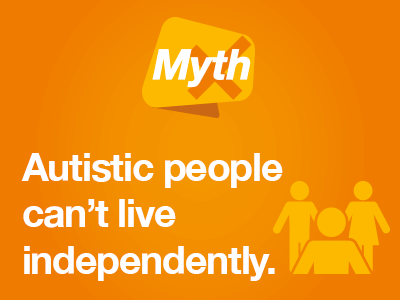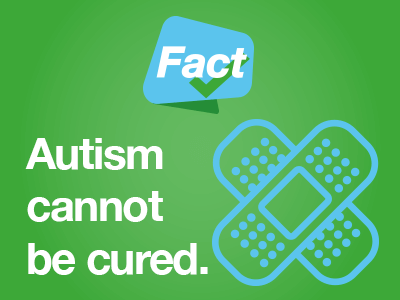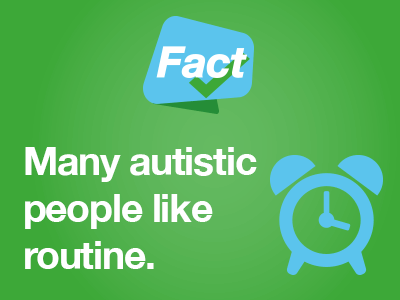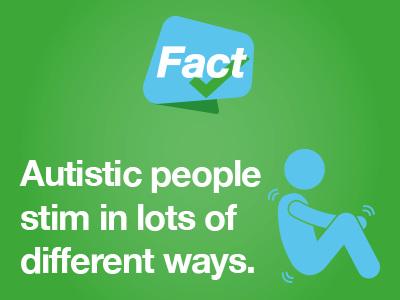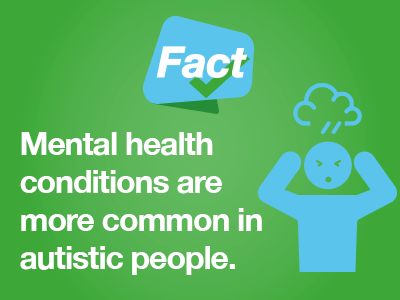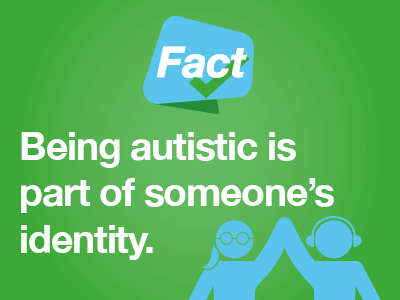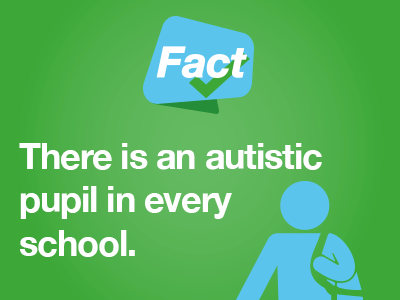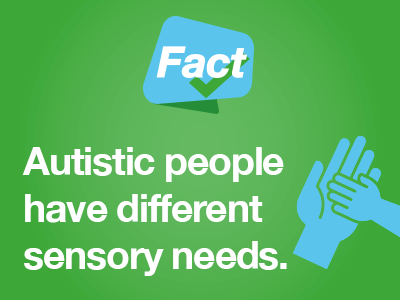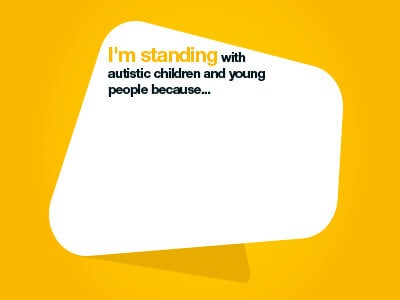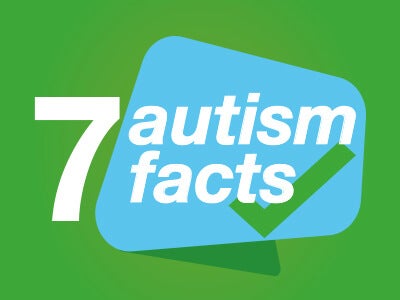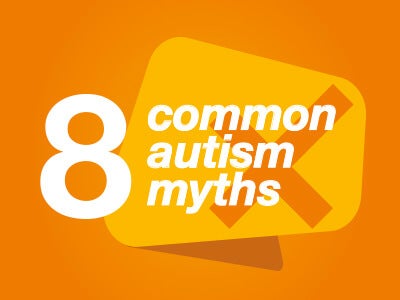Autism myths and facts

There are lots of myths and stereotypes about autism. These can be very unhelpful. On this page you can find information about common autism myths. You can also read facts about autism that are true.
You can also download our myths and facts posters to increase understanding of autism where you are.
Autism myths
On this section, you can find information about common autism myths.
Autism is a learning disability
Not true. A learning disability is a reduced intellectual ability and difficulty with everyday activities – for example household tasks, socialising or managing money – which affects someone for their whole life. Some autistic people also have a learning disability, but some do not.
Autism is a male condition
People of all genders can be autistic but there is still a big assumption it mainly affects boys. The presentation of autism can be different between males and females and some autistic people, particularly girls, learn to mask autistic traits to fit in – for example, by practicing maintaining eye contact or rehearsing social interactions before they happen.
All autistic people have special abilities
The outdated ‘Rain Man’ stereotype that all autistic people are geniuses is incorrect and unhelpful. Lots of autistic people have intense special interests and may have a lot of knowledge about a favourite subject, but that's not the same as having superpowers.
Everyone is a little bit autistic
Sometimes people think about autism as just being introverted or a bit socially awkward, but this is very invalidating. The reality is so much bigger than that. Autism is a neurotype that affects how people communicate and experience the world.
All autistic people are maths geniuses
This is just not true. Every autistic person is different and has different abilities and interests. Not every autistic person is a maths genius. While some may have excellent number skills, others may have strengths that lie in art, music, science or sports.
Autistic people are shy and introverted
Autistic people might socialise in a different way to neurotypical people, but this does not mean that it's wrong or a deficit, it's just different. Lots of autistic people want friendships and are very loyal and caring friends.
Autistic people are only interested in trains
Not true. Special interests can be on literally anything. Some special interests begin in childhood, but some are picked up later in life. Special interests are vast and wonderfully varied, they can range from music or Disney films to trains, history or TV programmes—we should celebrate them all.
Autistic people can’t live independently
Many autistic people live independent lives and many more would be able to if they had better support and understanding from society. Currently only 21.7% of autistic people are in full or part time employment, the lowest of all disabled groups. Everyone should have the chance to reach their potential.
Autism facts
Now learn the truth about autism by reading facts compiled by young people.
Autism cannot be cured
Autism lasts a lifetime and there is no cure. Sometimes people can be taken in by fake ‘cures’ for autism, these do not work and can actually be very harmful. And why would we want to cure autism? Autistic people have a unique perspective on the world that we should champion. Greater acceptance of autistic people by society would reduce some of the challenges they face.
Many autistic people like routine
Repetitive behaviours are a major part of life for many autistic children and young people. Having a routine, such as a certain way to get dressed or eat breakfast, can be an essential way of regulating emotion and providing someone with a source of comfort or enjoyment that enables them to carry on with their day.
Autistic people stim in lots of different ways
Stimming is short for self-stimulatory behaviour. It is a repetitive behaviour that can include the use of any of the senses, for example making sounds, staring at objects or lights or tapping hands or feet. Stimming can bring autistic people great joy and it’s really important for health and wellbeing. People should never be forced not to stim.
Mental health conditions are more common in autistic people
Ambitious about Autism’s research found that four out of five autistic young people have experienced mental health issues. Mental health conditions, such as depression and anxiety disorders, are more common in autistic people and have a huge impact on a person's daily life - hindering their ability to access full education and employment opportunities, for example.
Being autistic is part of someone’s identity
Being autistic is an intrinsic part of who someone is and makes them who they are. There can be challenges for autistic people but what we need is a world where autistic people are accepted for who they are and get the support and adjustments they need. It’s important that autistic people feel proud of their identity!
There is an autistic pupil in every school
A recent study of seven million young people found that around one in 57 children in the UK are autistic (1.76%). This means it is highly likely that every school in the UK has an autistic pupil.
We know that sadly autistic pupils experience many problems in education. It’s vital the education system is equipped to support them with the right funding, resources and trained staff.
Autistic people have different sensory needs
Autistic people can be ‘under’ or ‘over’ sensitive in any of the senses – including sight, hearing and balance. This means sounds, lights, touch and smells can be painful or very uncomfortable. To reduce discomfort, some autistic people may wear sunglasses indoors or wear ear defenders – or prefer not to be touched or only eat specific foods.
Download our resources
Use our downloadable posters, virtual backgrounds and email signature below to champion autistic children and young people wherever you are.

